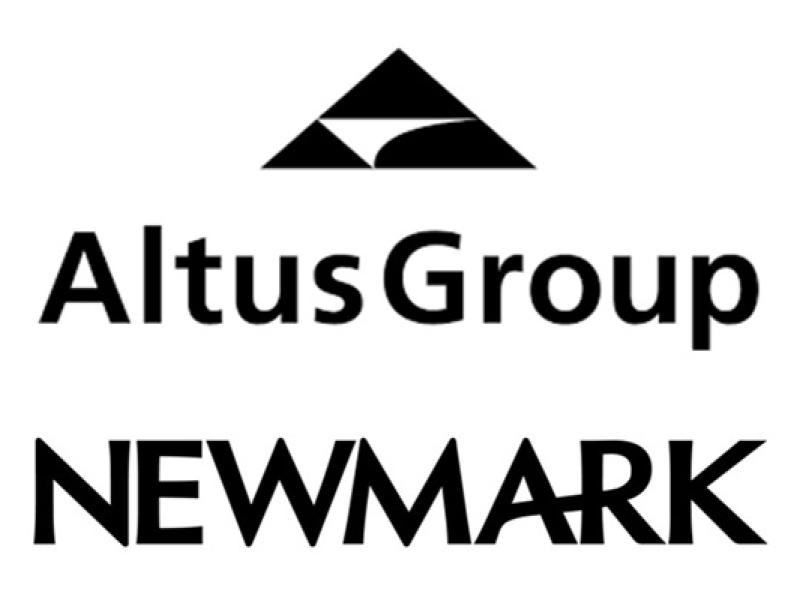
The Fairfield Inn & Suites by Marriott in Moncton, owned and operated by D. P. Murphy Group of Companies. (Courtesy D. P. Murphy)
Canada’s hotel sector was hit early and hard by the COVID-19 crisis, and a March 16 webinar addressed stakeholders seeking solutions and grappling with challenges.
How bad are things? Colliers Hotels managing director Robin McLuskie, who co-moderated the webinar with CFO Capital president Mark Kay, outlined these hard facts to 1,000 viewers — the maximum amount of people who could access the stream:
* More than half of all hotels are now closed across Canada.
* The hotel industry has laid off 80 per cent of its workforce . . . about 250,000 employees.
* The national hotel occupancy rate for the week of April 5-11 was just 12 per cent.
* Revenue per available room is down 85 per cent to just $12.
“We are a resilient industry and have experienced being on the front end of downturns before, so we will recover from this,” said McLuskie. “It’s just going to take some creativity and collaboration so that we can really make an impact.”
What follows is an overview of what the five panelists had to say about their organizations and the sector.
Accent Inns
Victoria-based Accent Inns has been owned and operated by the Farmer family since 1986. Mandy Farmer succeeded her father Harry as president and chief executive officer in 2008.
Five of Accent’s British Columbia properties are open, two have been closed and there’s one under construction. Farmer said the chain’s occupancy rate is about 50 per cent, including the closed locations.
Accent established protocols and procedures for keeping employees safe and welcoming guests early on, and Farmer said it’s “weathering this crisis fairly well.”
Accent is focusing on healthcare and other front-line workers concerned about putting family members at home at risk, but who were reluctant to utilize hotel rooms for a variety of reasons, including cost. It has partnered with United Way to raise money to house some of these people.
Accent has also involved community members and elementary school students to show support for front-line workers at its properties, including writing and leaving thank-you notes on their doors and giving them chocolate for Easter.
A restaurant in Victoria provides free meals to healthcare workers staying at the local Accent Inn.
Farmer has spoken with other hotel operators considering repurposing their properties into condominiums, rental apartments or seniors facilities because “we’re going to have a major recession following this.”
Even if expenses can be deferred, some hotels still might not have the revenue to cover them, according to Farmer. She thinks business travel will decrease next year and is concerned about the risk of future pandemics.
“Even when the crisis is over, I think that the hotel industry is going to suffer longer,” said Farmer. “I’m not as optimistic as I used to be.”
D.P. Murphy Group of Companies
Charlottetown-based D.P. Murphy Group of Companies was founded in 1980. It owns and manages 13 hotels with 1,400 rooms in Eastern Canada, as well as 60 restaurants under brands including Tim Hortons, Wendy’s, The Keg Steakhouse + Bar and Boston Pizza.
CEO Jeff Appleton joined the company three years ago after prior experience as a hotel developer, owner and operator in Canada and the U.S.
He said D.P. Murphy started making COVID-19 plans on March 8 and has since closed nine of its hotels. The four that remain open have single-digit occupancies and many guests are corporate clients.
The Atlantic Canada hotel market has a heavy seasonal component, and D.P. Murphy occupancies were in the 50 to 60 per cent range before COVID-19 really took hold, ending most travel.
D.P. Murphy has developed new cleaning policies, and Appleton said it’s keeping engaged with staff and guests and building plans for when “somebody hits the green button.” May 15 is the most optimistic date for a partial reopening to begin, according to Appleton, but that will still involve restrictions.
Many big functions normally held in the summer won’t happen this year, and international traveller numbers will be down considerably.
So, D.P. Murphy will focus on marketing and catering to local markets, including relationships “with all of the major nursing home providers and folks who may or may not need our services at some point.”
Appleton expects more government programs for the hotel industry will also gradually help right the ship.
“2020 is already in the bag and it’s going to be pennies on the dollar in revenue,” said Appleton. “But we’re going to use our time and our efforts to be ready for 2021.”
By 2022, Appleton expects business to return to at least 75 per cent of 2019 numbers.
“It’s multi-year, it’s not multi-quarter,” he said of the recovery. “I don’t think that any of us have to be converting ourselves to other uses or worrying that our industry is going to die.
“It’s going through a rough period and we’re going to be some of the hardest hit, but this too shall pass.”
Groupe Daca
Bertrand LeBoeuf founded Groupe Daca — a general contractor, developer and operator of Quebec real estate projects — in 1979. The firm has:
* developed and sold more than 1,500 condominium units;
* developed, owns and operates 800 apartment units;
* and developed and owns more than 1,000 hotel rooms, primarily Hilton and Marriott franchises in Montreal.
Some of Groupe Daca’s hotels remain open, while those catering primarily to tourists were closed following a cash-flow analysis. Stringent hygiene protocols have been put in place for employees and guests.
“We’re looking for the business market, but of course there’s not a lot of business in Montreal now, so the occupancy is extremely low,” said LeBoeuf. “But, we’re trying to get some of the government market and medical market.”
LeBoeuf said Groupe Daca is also looking at getting residents of nursing homes not affected by COVID-19 into its hotels. Some seniors residences have been hit particularly hard by outbreaks of the virus.
The low apartment vacancy rate in Montreal has also led Groupe Daca to establish 30-day, extended-stay programs that can include meals and amenities at its hotels.
LeBoeuf believes American tourists will return to Quebec once travel restrictions between Canada and the United States are lifted, though he thinks more will drive than fly.
He’s hopeful a vaccine will become available next year, leading to a turnaround through 2021 and return to pre-COVID-19 levels in 2022.
Pomeroy Lodging

Pomeroy Lodging CEO Ryan Pomeroy. (Courtesy Pomeroy)
Grande Prairie, Alta.-based Pomeroy Lodging employs 2,000 at more than 20 hotels and resorts in smaller markets in Alberta, B.C. and Alaska.
CEO Ryan Pomeroy said the executive team turned into a COVID-19 task force on March 9. Each member focused on different areas, covering fixed-cost reductions, labour plans for each property, government aid, customer and employee communications, liquidity planning, cash-flow forecasting, lender relationships, cleaning standards and more.
Pomeroy said daily conference calls were held for the first three weeks, and are now held weekly.
While the company has been forced into layoffs, Pomeroy said it continues to extend benefits to all employees. Any employees living on Pomeroy properties are allowed to stay rent-free.
Pomeroy is focused on maintaining strong relationships with oil and gas industry and infrastructure construction customers, major occupants of its limited service properties in secondary and tertiary markets.
Many workers want to get out of large workforce housing sites and camps near some of those markets because it’s difficult to maintain physical distancing. He sees Pomeroy properties as a viable alternative.
Pomeroy’s marketing and staffing strategies at its resorts will also be locally focused.
Summer job offers have been revoked at the Kananaskis property so laid-off, full-time employees can get back to work first. Food, beverage and catering have been merged into one large department.
“You have to be prepared to be in a very difficult situation for years,” said Pomeroy, who doesn’t see a return to pre-COVID-19 global travel levels until 2022.
“If you stay focused and accept your current realities and don’t get too in love with the system or process you’ve built, and you’re able to dismiss that and say in the next quarter ‘I need a new system and process to survive my new reality,’ you’ll be ready when things turn around.”
Hotel Association of Canada
The Ottawa-based Hotel Association of Canada serves the industry through member engagement, advocacy and the provision of programs and services.
President Susie Grynol said its virus response team has “been intimately engaged with our owner community in the formulation of our key asks to government.”
Grynol said the hotel industry was one of the first “sounding the alarm bells that we were about to hit an iceberg.” It continues working with federal officials on three areas of focus: employment, liquidity and recovery.
“We’re looking for a stimulus package from the government to ensure that we can rebound quickly and strongly out of this pandemic,” said Grynol, who’s been HAC president since 2016.
“The biggest wins for our sector to date are probably the wage subsidy program, GST and mortgage deferrals, and the $40,000 loan for some of our smaller members, and we just saw some extensions of that program.”
HAC will continue to push for additional federal support for the hotel sector, and Grynol believes it will come.
“The government is partial to supporting small business, and there’s a perception of our industry that we’re a big business of big American chains,” but Grynol said that’s not the case. She said 60 per cent of the Canadian hotel industry is independently owned and 87 per cent fits the government’s definition of small and medium-sized businesses.
HAC regularly posts updates and information at its COVID-19 portal. It has also extended free membership to anyone who wants to join and access information, and hosts weekly webinars.







